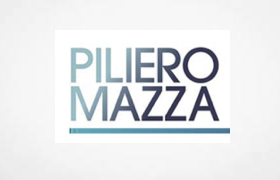As we know, in the almost five years since the COVID-19 pandemic began, courts have been reluctant to award costs to contractors affected by COVID-19, government-imposed safety regulations. However, in Chugach Federal Solutions, Inc.[1], the Armed Services Board of Contract Appeals (ASBCA) sustained an appeal, granting costs related to the quarantine of personnel resulting from the pandemic since the U.S. Air Force assumed responsibility for such costs under a health and safety contract clause. For government contractors filing COVID-related claims, this decision underscores the significance of effectively structuring a contract and maintaining consistent communication with the contracting officer.
The Facts
In November 2012, the Air Force awarded Chugach Federal Solutions (Chugach) an operations and maintenance contract for three isolated military facilities. All three facilities were under the Pacific Air Forces Regional Support Center (PRSC) command. Importantly, the contract incorporated FAR 52.243-4, Changes (June 2007) and AFFARS 5352.223-9001, Health and Safety on Government Installations (June 1997) (AFFARS Clause). The AFFARS Clause mandated Chugach to:
- comply with specific health and safety requirements established by the contract;
- comply with the health and safety rules of the government installation that concern related activities not directly addressed in the contract;
- take all reasonable steps and precautions to prevent accidents and preserve the health and safety of contractor and government personnel performing or in any way coming in contact with the performance of the contract; and
- take such additional immediate precautions as the contracting officer may reasonably require for health and safety purposes. The AFFARS Clause assured that if the contracting officer directed Chugach to follow any health and safety standards, any adjustments resulting from such direction would be in accordance with the Changes clause. Finally, the AFFARS Clause maintained that any violation of the clause could result in termination for default.
On March 18, 2020, the contracting officer emailed Chugach with a direction to implement guidance from the Commander of the PRSC. In the email, the contracting officer quoted the AFFARS Clause in its entirety and closed the email by informing Chugach that if any actions resulted in an increase of cost, Chugach must assert its right to an equitable adjustment within thirty (30) days from the issuance of the direction.
In the next month, Chugach received three emails from the Commander and his staff with directions on how to deal with the progressing COVID-19 pandemic. The contracting officer was copied on all emails. The final directive required Chugach to abide by a 14-day self-quarantine.
On April 14, 2020, Chugach emailed the Commander, with the contracting officer copied, indicating that the estimated cost to comply with the quarantine directives would be approximately $300,000. Chugach then submitted its certified claims for costs connected to complying with the COVID-19 directives. Following submission, the contracting officer denied the claims, and Chugach appealed to the ASBCA.
ASBCA’s Holding
The ASBCA first decided whether the AFFARS Clause applied to the 14-day quarantine requirement such that Chugach was entitled to an equitable adjustment under the Changes clause. The ASBCA concluded the AFFARS Clause did apply because the contracting officer acknowledged so by quoting the clause and explaining the equitable adjustment procedures in the first COVID-19 email to Chugach. The ASBCA rejected the Air Force’s argument that the AFFARS Clause should not apply because COVID-19 procedures applied to everyone and not just contractor personnel, reasoning that “though the health/safety standard must be required in the performance of the contract to fall under the clause, nothing in the clause says that the standard must only apply to contractors at the installation and not to other personnel.”
The Air Force then argued that even if the AFFARS Clause were to apply, the Sovereign Acts Doctrine (the Doctrine) applies, which protects the Air Force from liability for action resulting from its public and general acts as a sovereign. The Doctrine is an affirmative defense, meaning the government has the burden of proving each element. The elements are (1) that the government engages in a sovereign act and (2) that such an act renders the government’s performance impossible. Here, the ASBCA did not decide whether the Air Force’s quarantine mandate was a sovereign act because it found the Air Force failed to prove their performance was impossible.
In order to prevail under the second element, the government must pass the impossibility test, which has two elements: (1) the non-occurrence of the act in question must have been a basic assumption of the contract and (2) the government must not have assumed the risk that such an act would occur. Here, the occurrence of a quarantine was contemplated by the contract as evidenced by the AFFARS Clause. Further, the government explicitly assumed the risk under the AFFARS Clause. As such, because the Air Force failed to prove one element of the sovereign acts defense, the defense did not protect the government from liability and Chugach was entitled to the equitable adjustment.
Takeaways
- Chugach’s success may be an exception given the structure of the contract; however, it proves that certain terms and conditions allow for adjustments particularly those tied to health and safety.
- Importantly, the inclusion of the AFFARS Clause and the inclusion of the contracting officer in all communications to provide proper notice of the increase in costs to Chugach determined Chugach’s success here. The contracting officer is typically the only person with the authority to negotiate Changes to a government contract. As such, it is likely that without the contracting officer’s timely notice of the increase in costs, Chugach may not have been successful here.
[1] ASBCA Nos. 62712, et al.
Source
JD Supra
https://www.jdsupra.com/legalnews/overcoming-the-sovereign-acts-doctrine-3111843/




